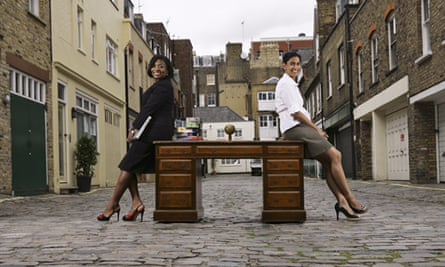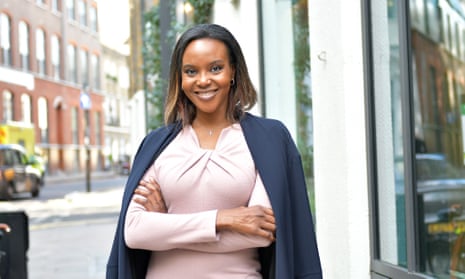When Funke Abimbola graduated 20 years ago, it took 150 phone calls to secure her first job in law. “I thought that would be it – once I was in, it would be fine,” she says.
Her career progressed well to begin with, until, aged 28, she had her first child. The response when she returned from maternity leave nearly made her abandon the profession.
“It was one of the lowest periods of my life,” she says. “I was the first person in the firm’s history to ask to work flexibly and they weren’t set up for [it]. I felt helpless. I thought the moment I was more senior and able to do something about that, I was going to.”
It’s a struggle many women in law face, which is reflected in the low number of female lawyers in leadership positions. Despite the fact that women account for 61% of law graduates, only 28% of private practice partners are female. The numbers are similarly troubling at judicial level. England and Wales have among the lowest proportion of female judges in Europe, and a 2010 Law Society review found that the lack of flexible work opportunities was a significant obstacle to women progressing up the career ladder. The gender pay gap in law is 30%, compared with a UK-wide average of 19%.
But there are signs of change. Magic Circle firm Linklaters recently launched a flexible working pilot scheme in Germany, and more than a third of UK legal firms and practices have signed up to the Law Society’s diversity and inclusion charter, which includes a commitment to flexible working. To improve diversity more broadly, a new Lawyer Portal aims to help students aged 14 and over find opportunities, regardless of their background.
Lady Justice Heather Hallett, the first female vice-president of the Queen’s Bench division and chair of the Judges’ Council diversity committee, says the law sector has “changed considerably for the better” for women.
“I hope there is no glass ceiling,” she adds, “but I am not sure that all those involved in selection processes appreciate the difficulties that a woman (particularly one with caring responsibilities) may face.”
She says greater recognition that sexism and discriminatory practices are unacceptable is needed across all organisations, as well as the “genuine commitment of those in senior positions to improve diversity and social inclusion”.
“There are some men who, having seen dramatic changes since the 1970s, question whether there are still any problems today,” she says. “I can assure them there are.”
Some women are setting up their own law firms to drive a new way of working. Sarah Goulbourne co-founded Gunnercooke in 2010 and was inundated with applications from senior female lawyers, many of whom were considering a career change. The firm now has 200 lawyers across the country, 60% of whom are female. All are self-employed and work flexibly from home.
“One of the things we’ve been told by our clients is how much happier our lawyers are,” Goulbourne says. “Those [working in traditional] models are under so much pressure and strain.”
It’s a sentiment Janvi Patel and Denise Nurse agree with. Both had worked in private practice before moving to work in-house (Patel for Nortel Networks and Nurse for BSkyB). They realised there was a disconnect between what corporate in-house teams wanted (flexible legal advice that was available quickly from solicitors who understood they were part of a broader picture) and the private sector’s bill-by-hours model, which quickly became expensive. The pair set up Halebury in 2007 to address this gap. They now have a team of 35 lawyers and recently won a rising star in law award.

“What we did is focus on the relationship [between client and lawyer], as opposed to all the other bells and whistles,” Patel says. “And there’s a level of flexibility that comes with that. We don’t worry about how many hours you work and targets – it’s about what you bring to the table.”
Patel believes it’s vital to show the next generation that things are changing. She has also found lawyers and clients are pushing firms to champion diversity.
“I have seen amazing general counsels saying if there aren’t enough women or diversity, it’s not going to be looked on favourably. That is huge.”
One of those general counsels is Abimbola. She didn’t quit law when the going got tough and was awarded an MBE this year for her services to diversity in the legal profession. Now company secretary for the UK and Ireland at Roche, diversity is a key requirement when she looks to retain private practice firms.
“There were a lot of firms who weren’t even shortlisted when I did my request for proposals a couple of years ago,” she says. “The arrogance was unbelievable. But one of them did reach out to me to years later and said, ‘What can we do? We’re losing business’.”
Her advice to female graduates entering law now is simple: “It’s about being brave enough to ask for what you need.”
But she says the legal profession also needs to evolve to appeal more to young people. “The men coming through now are no longer prepared to do the long hours either.”

Comments (…)
Sign in or create your Guardian account to join the discussion